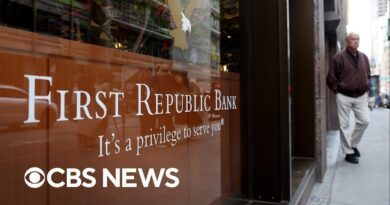20% of older Americans have no retirement savings, fear never getting to retire

WASHINGTON (TND) — About 20% of Americans who are 50 or older and not yet retired have no retirement savings and are concerned about prices rising faster than their income as inflation continues to present a challenge to households and entitlement programs are facing budget shortfalls.
A survey released Wednesday by AARP, a nonprofit supporting older Americans, found a majority of Americans 50 and older are worried they won’t have enough money for retirement and 26% don’t believe they will ever be able to stop working.
Concerns about the cost of living have gone up for Americans in all age groups over the last few years as prices for necessities like food and fuel have gone up with inflation and the price of housing has also skyrocketed, presenting challenges for retirees who are operating on fixed incomes.
Various surveys have found people are having to dip into their savings or use credit to cover monthly expenses, which makes it harder for people to prepare for retirement. Nearly one-third of adults in the AARP survey reported carrying a balance of $10,000 or more from month to month on their credit cards, and 12% said their balance was at least double that, an increase from 8% in last year’s survey.
“Every adult in America deserves to retire with dignity and financial security. Yet far too many people lack access to retirement savings options and this, coupled with higher prices, is making it increasingly hard for people to choose when to retire,” said Indira Venkateswaran, AARP senior vice president of research. “Everyday expenses continue to be the top barrier to saving more for retirement, and some older Americans say that they never expect to retire.”
While a sizable chunk of soon-to-be retirees are dealing with debt and the cost of living, some have hope of their personal situations improving. One-third of those in the survey said they believed their finances will be better 12 months from now.
For older Americans without retirement savings, financial advisers say that it’s never too late to start putting money away.
“Obviously you’re not going to have the kind of retirement that you might have dreamed of, but having any retirement savings is better than having no retirement savings. So if you reach 50 and you don’t have anything to save, it’s definitely not too late to start and to save whatever you can,” said David John, senior policy adviser at AARP.
Helping ease costs for retirees has been a frequently discussed issue in the 2024 presidential campaign, with President Joe Biden and former President Donald Trump rolling out policy proposals they say will reduce costs for seniors as they try to court their votes.
Biden has frequently touted the $35 price cap on insulin and Medicare gaining the ability to negotiate directly with drugmakers for prescriptions as helping seniors. He has also vowed to protect Social Security and Medicare from cuts as both programs facing budget shortfalls in the next 10 years. Trump has suggested he is open to cuts to the programs before backtracking and pledging to protect them.
Presidential pledges to protect Social Security and Medicare have added pressure on lawmakers to avoid making controversial and unpopular changes to the programs, which are both heading for shortfalls within the next decade. Medicare will be unable to pay full benefits for inpatient hospital visits and nursing home stays by 2031, according to the latest annual report from the program’s trustees. Social Security will have to cut benefits to 66 million retirees just two years later without congressional intervention.
Reduced benefits from Social Security and Medicare are another factor complicating the financial future for millions of older Americans who rely on them to ease their financial burden. While the looming shortfalls have been known for years, Congress has not stepped in to address the problems.
Many of the potential solutions to the fiscal issues — raising taxes, increasing the retirement age and cutting benefits — are very unpopular with voters, particularly those at or nearing retirement age. That has been a significant factor in a lack of action from Congress.
Another challenge for people needing to save for retirement is the volume of Americans who do not have access to a workplace plan. There are nearly 57 million people in the U.S. who do not have access to a plan at work, which makes them 15 times more likely to save, according to AARP.
“About half the workforce in the private sector works for someone that doesn’t offer them a retirement benefit,” John said. “If you don’t have payroll deduction at work, essentially you don’t save for retirement very effectively.”



